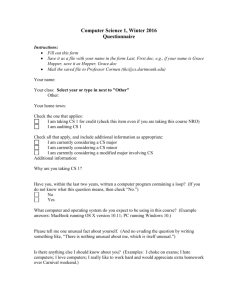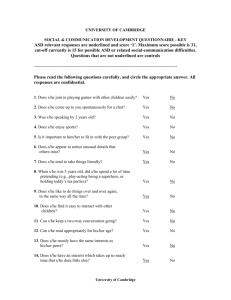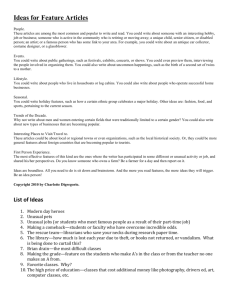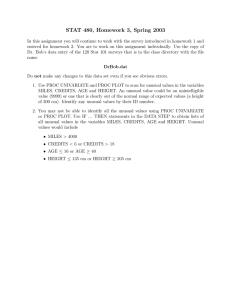12 Traits of Giftedness
advertisement
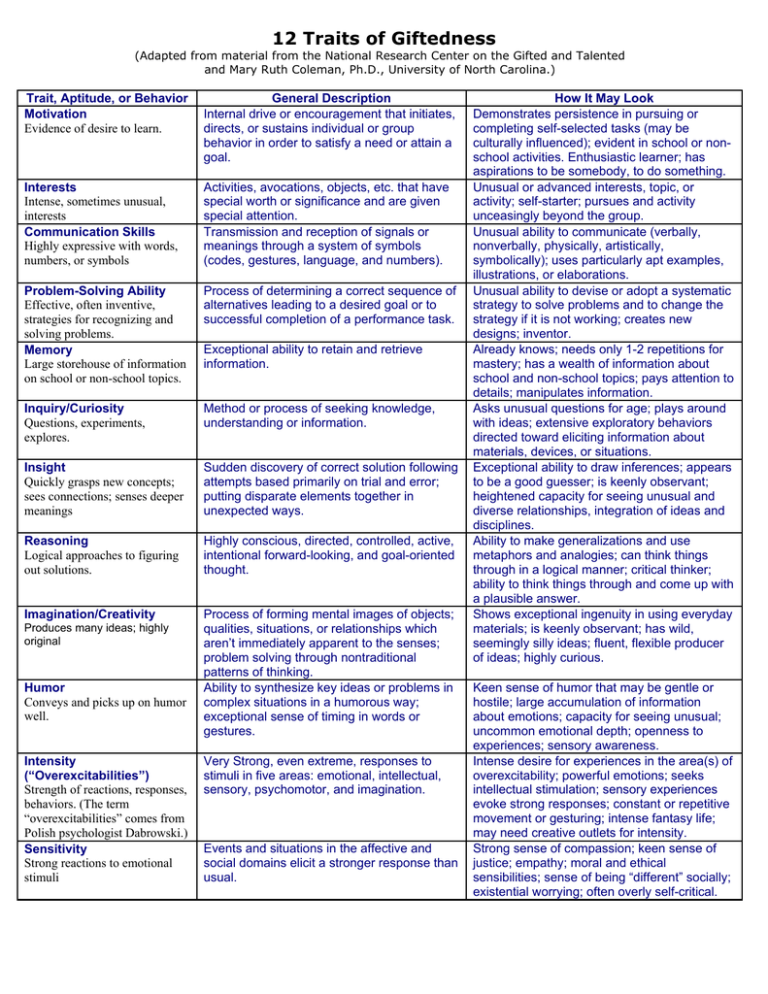
12 Traits of Giftedness (Adapted from material from the National Research Center on the Gifted and Talented and Mary Ruth Coleman, Ph.D., University of North Carolina.) Trait, Aptitude, or Behavior Motivation Evidence of desire to learn. General Description Internal drive or encouragement that initiates, directs, or sustains individual or group behavior in order to satisfy a need or attain a goal. Interests Intense, sometimes unusual, interests Communication Skills Highly expressive with words, numbers, or symbols Activities, avocations, objects, etc. that have special worth or significance and are given special attention. Transmission and reception of signals or meanings through a system of symbols (codes, gestures, language, and numbers). Problem-Solving Ability Effective, often inventive, strategies for recognizing and solving problems. Memory Large storehouse of information on school or non-school topics. Process of determining a correct sequence of alternatives leading to a desired goal or to successful completion of a performance task. Inquiry/Curiosity Questions, experiments, explores. Method or process of seeking knowledge, understanding or information. Insight Quickly grasps new concepts; sees connections; senses deeper meanings Sudden discovery of correct solution following attempts based primarily on trial and error; putting disparate elements together in unexpected ways. Reasoning Logical approaches to figuring out solutions. Highly conscious, directed, controlled, active, intentional forward-looking, and goal-oriented thought. Imagination/Creativity Process of forming mental images of objects; qualities, situations, or relationships which aren’t immediately apparent to the senses; problem solving through nontraditional patterns of thinking. Ability to synthesize key ideas or problems in complex situations in a humorous way; exceptional sense of timing in words or gestures. Produces many ideas; highly original Humor Conveys and picks up on humor well. Intensity (“Overexcitabilities”) Strength of reactions, responses, behaviors. (The term “overexcitabilities” comes from Polish psychologist Dabrowski.) Sensitivity Strong reactions to emotional stimuli Exceptional ability to retain and retrieve information. Very Strong, even extreme, responses to stimuli in five areas: emotional, intellectual, sensory, psychomotor, and imagination. Events and situations in the affective and social domains elicit a stronger response than usual. How It May Look Demonstrates persistence in pursuing or completing self-selected tasks (may be culturally influenced); evident in school or nonschool activities. Enthusiastic learner; has aspirations to be somebody, to do something. Unusual or advanced interests, topic, or activity; self-starter; pursues and activity unceasingly beyond the group. Unusual ability to communicate (verbally, nonverbally, physically, artistically, symbolically); uses particularly apt examples, illustrations, or elaborations. Unusual ability to devise or adopt a systematic strategy to solve problems and to change the strategy if it is not working; creates new designs; inventor. Already knows; needs only 1-2 repetitions for mastery; has a wealth of information about school and non-school topics; pays attention to details; manipulates information. Asks unusual questions for age; plays around with ideas; extensive exploratory behaviors directed toward eliciting information about materials, devices, or situations. Exceptional ability to draw inferences; appears to be a good guesser; is keenly observant; heightened capacity for seeing unusual and diverse relationships, integration of ideas and disciplines. Ability to make generalizations and use metaphors and analogies; can think things through in a logical manner; critical thinker; ability to think things through and come up with a plausible answer. Shows exceptional ingenuity in using everyday materials; is keenly observant; has wild, seemingly silly ideas; fluent, flexible producer of ideas; highly curious. Keen sense of humor that may be gentle or hostile; large accumulation of information about emotions; capacity for seeing unusual; uncommon emotional depth; openness to experiences; sensory awareness. Intense desire for experiences in the area(s) of overexcitability; powerful emotions; seeks intellectual stimulation; sensory experiences evoke strong responses; constant or repetitive movement or gesturing; intense fantasy life; may need creative outlets for intensity. Strong sense of compassion; keen sense of justice; empathy; moral and ethical sensibilities; sense of being “different” socially; existential worrying; often overly self-critical.
